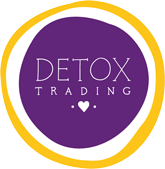When it comes to healthy eating, salt can sometimes get a bit of a bad rap. It’s true that too much of it – rather like too much of anything – can be bad for you, but the right levels of salt are very important in getting a balanced diet.
The first thing to do with salt is understand where it comes from and just what its benefits are. It is a naturally occurs mineral known in scientific terms as sodium chloride. It appears in rock but is commonly dissolved in water; mainly the sea but sometimes in large inland lakes, such as the Dead Sea, Caspian Sea and Great Salk Lake in Utah.
Being a natural compound, it is present in living things around the world and its mineral qualities are important for human health. That’s why organic salts should form a part of your diet.
Among the great benefits of salt are that it helps digestion, because that’s a process that requires hydrochloric acid. That is generated using a combination of hydrogen and chlorine ions, the latter being a component of salt.
Salt is also an electrical conductor, which can help with key body functions such as heartbeat and the motor functions in muscles.
It is even good for rehydration. While we can’t drink very salty water (like seawater), it is also true that drinking water completely purified of salt would be bad for us. Denying the body important electrolytes will lead to water intoxication. In addition, a bit of salt is good for oral health as it kills off harmful bacteria.
Salt us also good for regulating the way the body’s insulin reacts to glucose, acting as a protection against diabetes.
It might even be a surprise to learn that salt is good for normalising blood pressure. Often we think of salt as raising pressure too high, but that is when we have too much. Too little, however, removes the electrolyte balance in the same way that completely salt-free water would, leading to blood pressure being too low. In the same way, the right level of salt normalises cholesterol.
Reading what the NHS website has to say about salt might give the impression that the substance is all bad news and that somehow we should do without it. However, in saying an adult should not consume more than 6 grams, it is important to note that this is absolutely not a recommendation not to have salt at all.
The reason for the guidance being what it is stems from the fact that so many of the packaged foods available on supermarket shelves have large amounts of added salt, acting as flavours and preservatives. Moreover, many popular foods have a lot if salt in, such as bacon, cheese and dried fish.
For those using organic foods instead, this issue will not be such a problem. That means you can use small amounts of organic salt with your food to provide flavour and also just the right balance of minerals to ensure everything is working well, ensuring you stay healthy without ever adding the kind of excess levels that can unjustifiably give salt a bad name.
Join the Detox Trading community over on our YouTube channel!

